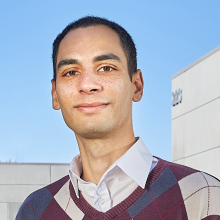-
Title
Data Science Institute Ambassador and Staff RL Researcher -
Email
leno@llnl.gov -
Organization
ENG-CED-COMPUTATIONAL ENGINEERING
Felipe Leno da Silva (Leno) received the Ph.D. degree in Computer Engineering from the University of São Paulo, Brazil, in 2019. He has been a Postdoc Reinforcement Learning Researcher at the Lawrence Livermore National Lab, USA, since 2021, where he applies RL to varied applications.
Previously, he has held a Postdoc position at the Advanced Institute for AI, where he helped to approximate the industry and academic sectors in Brazil, including being a key member in the development of one of the first AI residencies in the country. His research collaborators include Professor Peter Stone from UT Austin, and Matthew Taylor, from University of Alberta.
His works are concerned with several topics of Machine Learning, but he is better known for his research on Transfer Learning for Multiagent Reinforcement Learning.
Leno is a Guest Editor for Neural Computing and Applications, and has organized several workshop series, including the Adaptive and Learning Agents (ALA) workshop between 2020-2022 and the Latinx in AI workshop at NeurIPS. He has published one book and over 40 scientific papers in peer-reviewed venues. His research interests spam across several AI areas and applications such as Reinforcement Learning, Transfer Learning, Multiagent Systems, Power Electronics, Smart Grid, Transportation, Antibody Development, and AI-assisted Healthcare.
Full publication list: https://scholar.google.com/citations?user=XbyIZQ4AAAAJ&hl=pt-BR&oi=ao
Ph.D. in Computer Engineering, University of Sao Paulo, Sao Paulo, Brazil.
Full publication list: https://scholar.google.com/citations?user=XbyIZQ4AAAAJ&hl=pt-BR&oi=ao
Director's Science and Technology Award, 2022.
Directorate Publication Award, 2022.
Third place in the Brazilian Thesis Competition on AI, edition 2018-2020
Honorable mention as Best Student Poster at the 31st AAAI conference, 2018.
BRACIS: Best Paper Award at the 5th BRACIS conference, 2017.


